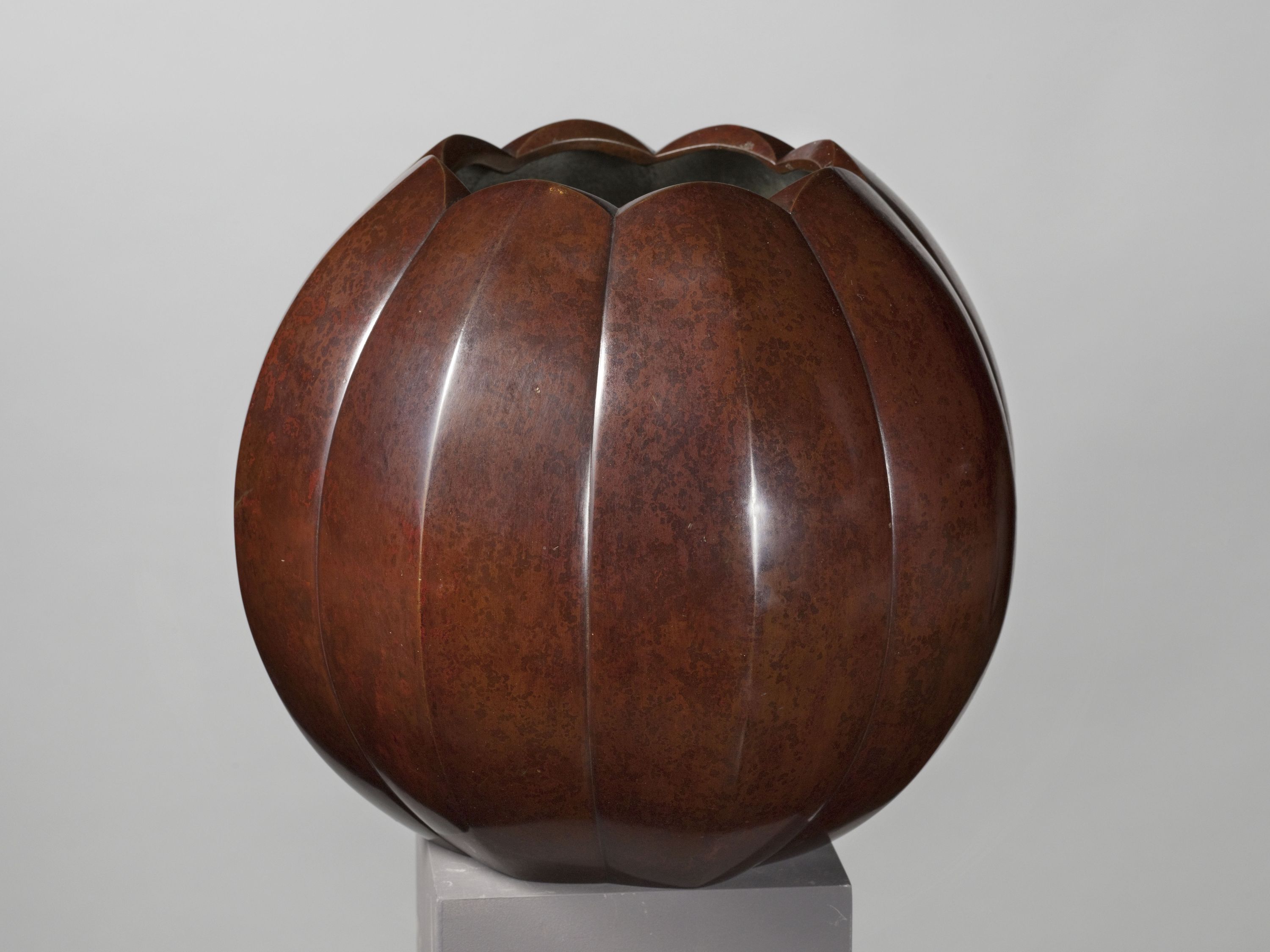
Sculpture en bronze en forme de melon
Bronze, Patine
Vase
Don manuel : Société des Amis du musée Cernuschi
M.C. 2013-2
This vase with a fine reddish-brown patina has a globular form with gadroons extending into the lip. Each gadroon has a central vertical ridge. Bronze and iron were used in Japan from the 3rd century BC (Yayoi period). This metalwork developed considerably with the introduction and growth of Buddhism from the 6th century. Flower vases in a copper or bronze alloy were placed on altar tables in front of Buddhist statues next to incense burners. Over the centuries and to the present day, large numbers of these vases for flower arrangements have been cast to meet the needs of temples and for private donators. New forms have emerged, however, in relation to the tea ceremony, some inspired by Chinese vessels. This renewal of forms took place after the opening up of Japan to the West, with certain artists favouring this material for decorative works. Following the 1925 Exposition des Arts Décoratifs in Paris, Japanese bronze casters were influenced by Art Deco trends.
This form of vase with gadroons is found in pieces dating from the Edo period (1603-1868), probably reflecting the contemporary taste for vegetable- and plant-shaped forms. However, the smooth, clean ridges, full-bodied shape and symmetry between the base and mouth of this work by Yasumi II lend it a new modernity that sets it apart from earlier vessels.
Nakajima Yasumi II (1905-1986) was the eldest son of the Ōsaka-born artist Yasumi I. A graduate of the National Tohoku Craftworks Institute in Sendai, he participated for the first time, in 1933, in the Ministry of Trade and Industry Export Craft Exhibition. He exhibited his work in Paris and Buenos Aires. In 1952, he was awarded the Hokuto-shō medal at the Nitten exhibition (Japanese Fine Arts Exhibition) and in 1969 was awarded the honorary medal for traditional arts by Ōsaka prefecture.